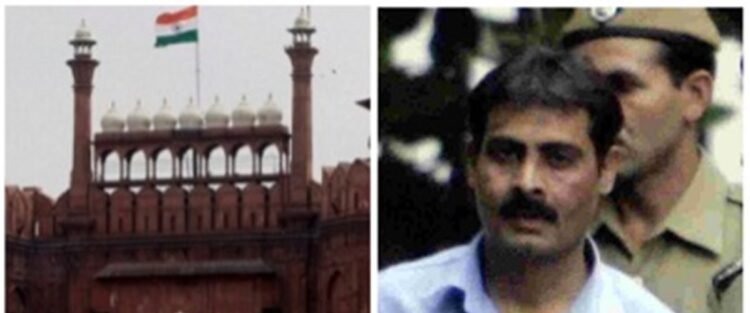A retired Lt Colonel recently highlighted a case that raises serious concerns about India’s judicial and governance system. The terror case involves Mohammed Arif, a Pakistani national and a terrorist from Lashkar-e-Taiba (LeT) terror group convicted of killing 3 Indian Army personnel in December 2000. 23 years on, the terrorist has not yet been executed, despite being sentenced to death by a trial court in 2005.
On December 22, 2000, Arif along with other terrorists opened fire at the 7 Rajputana Rifles unit stationed at the Red Fort, claiming the lives of 3 on-duty soldiers.
While Arif was arrested four days later, and his trial culminated in a death sentence in October 2005, the other three terrorists Abu Shaad, Abu Bilal and Abu Haider — who were involved in the attack were gunned down in separate encounters.
The Delhi High Court upheld this sentence in 2007, and the Supreme Court confirmed it in 2011. However, Arif’s subsequent review and curative petitions prolonged the legal proceedings for over a decade.
In November 2022, the Supreme Court rejected Arif’s review petition, noting that the Red Fort Attack was a threat against India’s unity, integrity, and sovereignty. It added that there were no mitigating circumstances in the convict’s favour.
In May 2024, President Droupadi Murmu rejected his mercy petition. Despite these rulings, Arif remains in Tihar Jail availing all the benefits of an ordinary prisoner.
While the judiciary’s primary responsibility is to administer timely justice, this significant delay in terrorist Mohd. Arif’s execution undermines the value of soldiers’ lives who attain martyrdom in the line of duty. It also raises doubts about the efficiency of India’s legal system because such cases demand introspection and reform to ensure that justice is not just delayed but effectively delivered.

















Comments